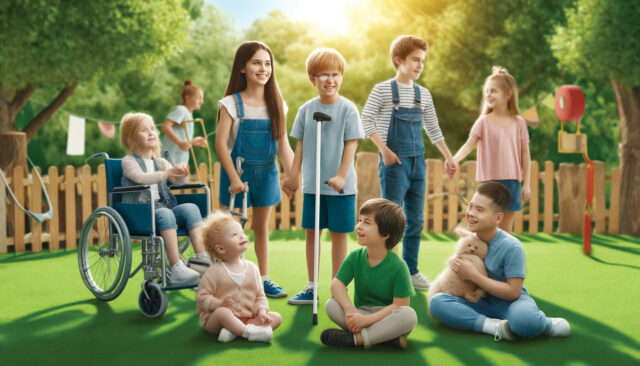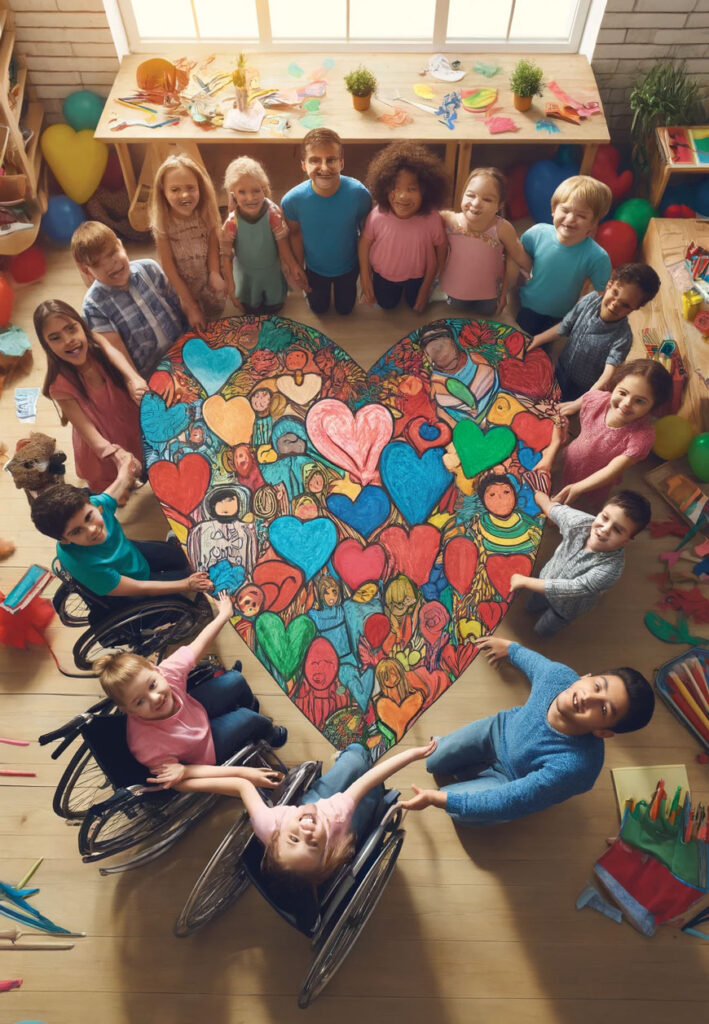
Victoria Safdieh
What do we mean when we say a child with special needs? Isn’t every child special? We all think so! Special needs can mean many different things. The term “special needs” encompasses various conditions that impact a person’s daily functions. A person might be born with special needs, or they may develop THEM later in life. You may be able to spot an individual with special needs, but you probably won’t notice all of them. The individual could have a diagnosis that isn’t noticeable unless you know the person well.
Life can be extra challenging for an individual with special needs. It might be hard to do everyday things, like learning or reading. If a person has a physical handicap, just getting around can be difficult. The term special needs can mean many different things to different people. The definition in the dictionary for “special needs” is an individual that may require accommodations, specialized services to participate in everyday activities.
When someone refers to people with special needs, they could be referring to someone who has a medical issue, someone who has sensory impairments, someone with a mobility impairment. It could mean a developmental delay, an impairment in communication, self-care, social interactions and cognition. It can refer to a wide variety of conditions and disabilities. The following are some ways to categorize special needs. Physical disabilities can include but are not limited to:
Multiple Sclerosis: Where the immune system eats away at the protective covering of the nerves disrupting communication between the brain and the body, symptoms can include vision loss, pain, fatigue, and impaired coordination.
Cerebral Palsy: Results from a brain injury that occurred during fetal development, birth or shortly thereafter. Symptoms can sometimes include seizures, paralysis, and disruption of motor skills. Gait and posture could also be compromised.
Epilepsy-Seizure Disorder: Recurring seizures. Seizures are caused by a sudden burst of electrical brain activity, that cause a temporary disruption of the messages passing between brain cells. It can be managed with medication.
Limb Differences: Someone can be born with a differently developed limb, or may lose a limb later in life. Both require adapting to the world around them.
Genetic Disorders: Range from physical disorders to neurological disorders which have many different prognoses and symptoms. A saliva test or blood work can diagnose an individual with a genetic disorder.
Down Syndrome: A genetic condition caused by the presence of an extra chromosome in a person’s DNA and occurs by chance at conception. It is a random mutation and is not proven to be passed down from the parents. There are distinct physical characteristics accompanying Down syndrome. It can sometimes come along with complications like visual and auditory problems, thyroid disease, decreased muscle tone or cardiac conditions.
Autism Spectrum Disorder (ASD): Verbal and nonverbal communication can be affected by autism. This is sometimes evident before age three. It can affect educational performance and social interactions. Common characteristics can include but are not limited to repetitive activities and resistance to change in routines.
Sight Impairment: Blindness or loss of sight can be managed and diagnosed by an eye doctor.
Hearing Impairment: Loss of hearing and total deafness are considered special needs.
Tourette’s Syndrome: A condition of the nervous system, which causes tics — sudden twitches, movements or sounds that are done repetitively. The individual cannot stop or control their body from doing these things over and over.
Sensory Processing Disorder: The senses might be heightened or lowered to stimuli, like being touched, loud noises, tolerating light, and maintaining eye contact. The feeling of certain textures rubbing against the skin can be irritating. This can be a disorder all on its own or it may be a characteristic of another special need like autism, M.S., or Tourette’s syndrome.

Some individuals with a diagnosis can also come along with a secondary diagnosis. Such as obsessive compulsive disorder (OCD) — obsessions or excessive thoughts that lead to repetitive compulsive behavior; oppositional defiance disorder (ODD) — a type of behavior disorder. Children with ODD are uncooperative, defiant, and hostile toward peers, parents, teachers, and other authority figures. Developmental problems may cause ODD or the behaviors may be learned. ADD is a term used to describe people who have excessive difficulties with concentration without the presence of other ADHD symptoms, such as excessive impulsiveness or hyperactivity. This can also come along with a more significant diagnosis.
Loving someone with special needs or going through life with a special need yourself, can come with unexpected gifts. Families and children with Down syndrome know the boundless love and affection these children can bring to the family. They enjoy life in the moment. People with autism experience life from a different perspective and often times have more intense honesty and curiosity with the world around them. People living with a sensory processing disorder may find their bodies naturally enhance other senses to make everything more pronounced. It’s all about understanding these needs and knowing that you can get through it.
Victoria Safdieh, founder of CARE and mom to children with special needs.



